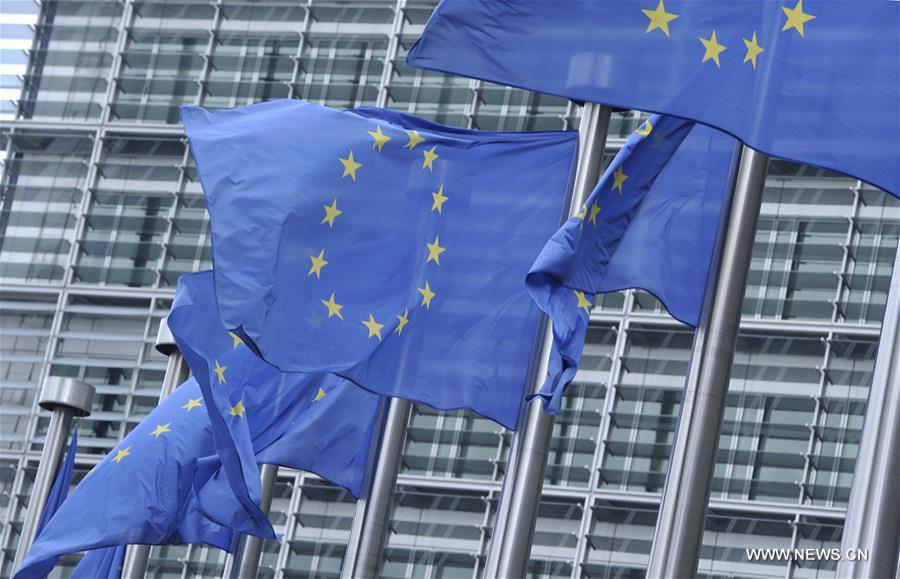Europeans upbeat about EU future
By Chen Yingqun | China Daily | Updated: 2019-08-12 09:40

A survey shows public faith in the bloc as most countries recover economically
Despite the increased fragmentation in the European Parliament and the arduous process of choosing European Union leaders, there is a strong increase in citizens' positive perception of the union across the board.
The Eurobarometer survey, released in August, found Europeans upbeat about the state of the 28-member bloc. Trust in the EU is at its highest level since 2014 and remains higher than trust in national governments or parliaments, with the highest scores in Lithuania (72 percent). Sixty-one percent of the European respondents were optimistic about the future of the EU, up 3 percentage points since last autumn.
The survey result is "not surprising", said He Yun, assistant professor at Hunan University's School of Public Management. She said that at about five years ago, many people were very pessimistic about the EU, which was suffering from economic recession and facing refugee issues. As time goes on, the "bitter memories" from the financial crisis and the immigration crisis began to fade.
"Divisions on immigration issues have been narrowed at the European level," she said. "As most countries recover economically, confidence in the EU leadership has reinstalled."
The chaos surrounding the United Kingdom's planned EU exit, which has lasted for more than three years, has also demonstrated to other European countries the nearly impossible task of leaving the EU, and has also encouraged them to be "more united than ever to pose a common front against the Brexit fall out", she said.
Support for the Economic and Monetary Union and the euro also reaches a new-record high, with more than three-quarters of respondents in the euro area in favor of the EU's single currency. In the EU as a whole, support for the euro is stable at 62 percent.
The latest survey was conducted after the European elections, between 7 June and 1 July, 2019, in all 28 EU countries and five candidate countries.
Zhao Junjie, a researcher in European studies at the Chinese Academy of Social Sciences, said that Europe is still in the midst of great changes and has witnessed the emergence of various kinds of ideas, which resulted in the fragmentation of its political ecology. Thus, many tend to think that the public will lose faith in the EU.
"However, the survey showed that the public has recognized the EU's efforts in the past few years," he said. "EU has been making progress, especially in recovering from economic recession and revitalizing its economy through innovation."
In his opinion, Horizon 2020, the biggest EU Research and Innovation program ever with nearly 80 billion euros ($89.58 billion) of funding available over 7 years (2014 to 2020), is the main contributor to the current positive economic performance of the EU. The program promises more breakthroughs, discoveries, and world-firsts by taking great ideas from the lab to the market and aimed at securing Europe's global competitiveness.
While recognizing EU's efforts across the board, fifty-six percent of Europeans surveyed also agreed that "their voice counts in the EU", up 7 percentage points since last autumn.
"In the past, the EU was dominated by the mainstream political groups, but in this year's elections, many smaller groups emerged, which resulted in the fragmentation inside the EU assembly, but also means that people's voices are heard," Zhao said.
The survey also said that climate change, which previously ranked as the fifth most important concern for Europeans, surged to be the second place this time, ranking just below immigration.
European countries have suffered from a record-breaking heat waves this summer. A poll commissioned by British charity Christian Aid said on Friday that seven in 10 British adults believe climate change matters more in the long term than quitting the EU.
Claudia Vernotti, director of ChinaEU, a business-led association in Brussels, said that the temperature in Belgium reached the highest ever two weeks ago at around 40 C. As air-conditioners are not common in Belgium, many people left their offices and homes during the "unbearably" hottest week and go to hotels that are with air conditioners to "survive", she said.
"Heat waves and extreme climate have become new norms in recent years and we are not ready for that," she said. "The situation calls for urgent solutions, and we can't fight with it successfully without joint efforts from the international community as it is so complex and sophistically intertwined."























